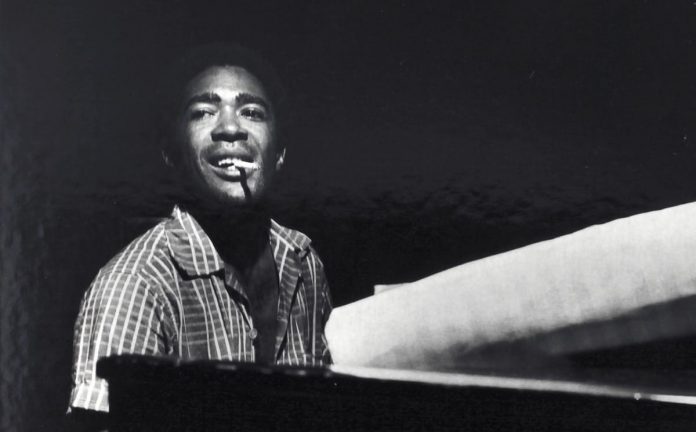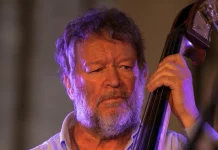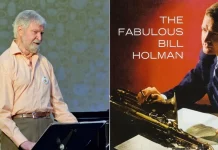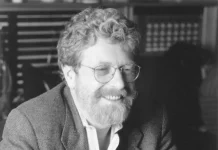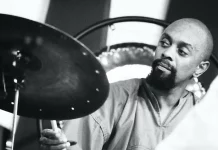Although he played piano as a child, it wasn’t until he was 18 and serving in the military in Korea that Freddie Redd seriously got the piano – and jazz – bug. Meeting up with a supply sergeant from Harlem who played a record for him, Redd later claimed that it blew his mind. It was Charlie Parker and Dizzy Gillespie playing Shaw Nuff and from that point on Redd became a bebop enthusiast. He spent the next three years playing and learning about the piano and finished up playing gigs at bases and army camps in Korea.
He left the military in 1949 just before the Korean war broke out and had already decided to become a full-time jazz musician. He studied the scene on 52nd Street and spent a lot of time listening to Parker, Bud Powell and Thelonious Monk. He began to get gigs and worked in the early 50s with Art Blakey, Art Farmer and Gene Ammons and toured California with Charles Mingus. He ended up staying on the West Coast through the late 50s and made a record there. On his return to NYC things changed dramatically.
Freddie Redd was busted for possession of marijuana and that meant that he lost his cabaret card, an essential item if you played in jazz clubs in those days. Redd moved to Greenwich Village and became involved with artists, musicians, writers and anybody engaged in creative pursuits. He lived in a large loft space and very soon became involved in the Village scene. There he met Gary Goodrow, an actor and saxophonist who had just been cast in a new play called The Connection. Goodrow told Redd that the play was about jazz musicians and needed some jazz. He introduced Freddie to the play’s author, Jack Gelber, who told him he had always planned to have jazz in his play, onstage and throughout the performance. He wanted, as he had written on his script, that “the jazz played is in the tradition of Charlie Parker.”
He told Redd that he thought they could improvise on blues and standard tunes, but the pianist asked to be allowed to write some original music which would key in exactly with what was happening onstage. This Redd did and what he came up with would be remembered long after the play finished its run. Pieces like Theme For Sister Salvation, Wigglin’, Jim’s Dilemma and Who Killed Cock Robin slotted in exactly with what was happening on stage. What was happening onstage was not your usual drawing room drama. Strung-out jazz musicians wandered on and off stage, talking to themselves and to the audience while waiting for a fix from their “connection”. On stage too was a play within a play, with a director and cameraman filming the addicts. Freddie Redd’s quartet were on stage all through the action, playing from time to time as the play progressed. Jackie McLean’s raw but lyrical alto sax and Redd’s chunky, sometimes dissonant piano chords, played with emotive energy, were driven on by Michael Mattos on bass and Larry Ritchie on drums. The two rhythm men settled in after several other duos had failed to make the grade.
The play was damned by most establishment critics, one calling it a load of filth, but a rave review in Village Voice and another from novelist Norman Mailer set it up for a long, successful run. It toured eventually all over the USA and in the UK. McLean and Redd stayed in the play, performing both as musicians and actors and Alfred Lion of Blue Note recorded all the music from the show with the original cast under Redd’s leadership. For Jackie McLean and Freddie Redd, both unable to perform in clubs at the time as they lacked cabaret cards, it was ideal employment, playing the music they loved every night and receiving acting credits too. Redd and the others also appeared in the 1961 film of the same name. Freddie recorded another LP for the Felsted label of music from The Connection, this time with tenor sax man Tina Brooks, Howard McGhee on trumpet and Milt Hinton with Osie Johnson providing the rhythm. It was good but lacked the punch and grit of the Blue Note original.
Downbeat magazine reviewed The Connection enthusiastically. “You must get it,” the reviewer said. He went on to say that Redd had proved beyond a shadow of a doubt that jazz could be organised and orderly and still retain all the spontaneity and creativity of the informal jam session. Blue Note recorded Redd again in 1960 and the resultant Shades Of Redd was well received. A third disc in 1961 found the pianist rehearsing slowly and getting on the wrong side of Alfred Lion. Redd said “I remember there was a lot of tension in the studio and Alfred got very angry. We ended up arguing and he said he would never release it. And he never did.” The record was eventually released on Mosaic in 1988 titled Redd’s Blues, and it was just as good as the others. It featured two of his favourites, McLean and Tina Brooks, who gave him the combined tenor and alto sound he liked. Brooks was a particular favourite and Redd used him on any dates he managed to land, recordings or live. Eventually it came out as a single CD.
After that Redd’s career, particularly as far as recording went, was sporadic. His early fame was never really sustained, although he was well respected by jazz musicians everywhere. Critics underrated him, in part because he often wasn’t visible, only playing and recording intermittently. He spent a lot of time in France and Denmark, returning to the USA in 1974. He went to live in Baltimore late in his life and played with known and unknown musicians there for several years. He returned to New York eventually but it was to retire. Freddie Redd will always be remembered for his music for The Connection, but he was a much more important musician than that single success story might indicate.
Freddie Redd: born Harlem, 29 May 1928; died NYC, 17 March 2021. He was predeceased by his wife Valerie and his children Stephanie Redd and Freddie Redd Jr. He is survived by his stepdaughter Susan Redd of NYC. Classic record: Freddie Redd Quartet: The Music From The Connection (Blue Note ST-84027)

